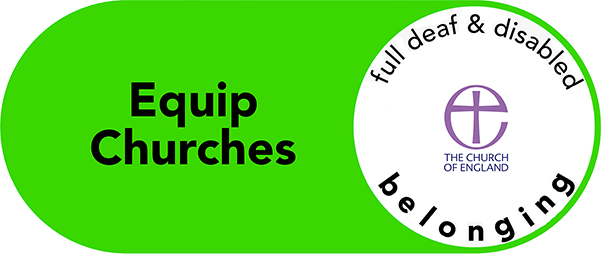Equipping the church for change

Corin Pilling, National Director UK of Sanctuary Mental Health Ministries writes below about what Sanctuary has to offer.
‘Mental health awareness? If it doesn’t lead to us recognising that everyone is unique, and our experiences are too, I’m not interested.’
I was talking to a friend who spoke from their long-term experience of living with a mental health challenge. I knew this comment carried weight, with some pain behind it. It’s possible to believe that talking about mental health is intrinsically worthwhile; but for many of us the concept of mental health awareness has become cultural wallpaper. Given the complexity, wariness of diving in is understandable— it requires commitment. Yet, the prevalence of mental health as a collection of issues impacting all of us increasingly offers a compelling reason.
Another compelling reason: If we are to model a church for all, how can we become communities that challenge stigma and create safety around this topic? Sanctuary have been wrestling with these questions for the last 13 years. Established in Canada by clergy looking to equip churches for a positive response to mental health, we’ve been working with churches in the UK since the pandemic. During that time we’ve delivered training on clergy burnout and wellbeing, offered resources on navigating the impact of COVID our wellbeing, created a podcast on Spiritual Trauma with therapist Hillary McBride, and at the centre of our offer to the church, launched a new version of The Sanctuary Course.
The Sanctuary Course is a free, film-based, 8-session course which helps groups explore mental health from a Christian perspective, underpinned by research and reviewed by experts. The Sanctuary Course is free, easily accessible online, and is designed for the whole church to be part of the conversation; the more of us involved in learning to listen to each other’s experiences from all walks of life, the more the culture changes in a church as mental health conversations are normalised. Not only this, we explore boundaries of help and support through exploring the course material together.
There’s a key value at the heart of Sanctuary’s approach; we aim to treat each other’s stories as sacred. Every course session is centred around a person, rather than a diagnosis, and we learn how their unique experience has challenged and changed them, seeking to honour these stories in content and presentation.
The richness of the faith journeys often present have always stood out to me. I think this is one marker of inclusion; when we are witnessed in this way as participants, we may also get to bring our gifts to the table, not merely being offered a seat at it. In each session, mental health professionals complement these stories with their insights and as groups work through the reflection exercises participants are given space to share their own experiences too. In my view, this is often where the gold lies. The course is not just a way to learn about mental health; it’s a way to build community.
Post pandemic, many of us are experiencing ongoing weariness. The challenge of picking ourselves up, after the collective challenges of those years, requires initiatives that can bring us together. We need reconnection, and many of us need a renewed sense of purpose. Crucially, a key tenet of the course is that whether we are experiencing times of languishing or flourishing- or merely in between, God is there and present with us. To be the kind of community that can help one another remember that, or hold the possibility when we simply cannot, can be a true gift of the community of faith to one another.
Our work is shaped by those in ministry – we’d love to hear from you and partner with you. A team based in London is here to offer support to access our resources and training across dioceses. We can offer support in using the course, training on offering first stage support for those experiencing mental health decline, and stress and burnout awareness for leadership. You’ll find our website on https://sanctuarymentalhealth.org/uk/ where you will see a film from our patron, The Archbishop of Canterbury, and you can sign up for updates- including news of our forthcoming youth course.

Leave a comment